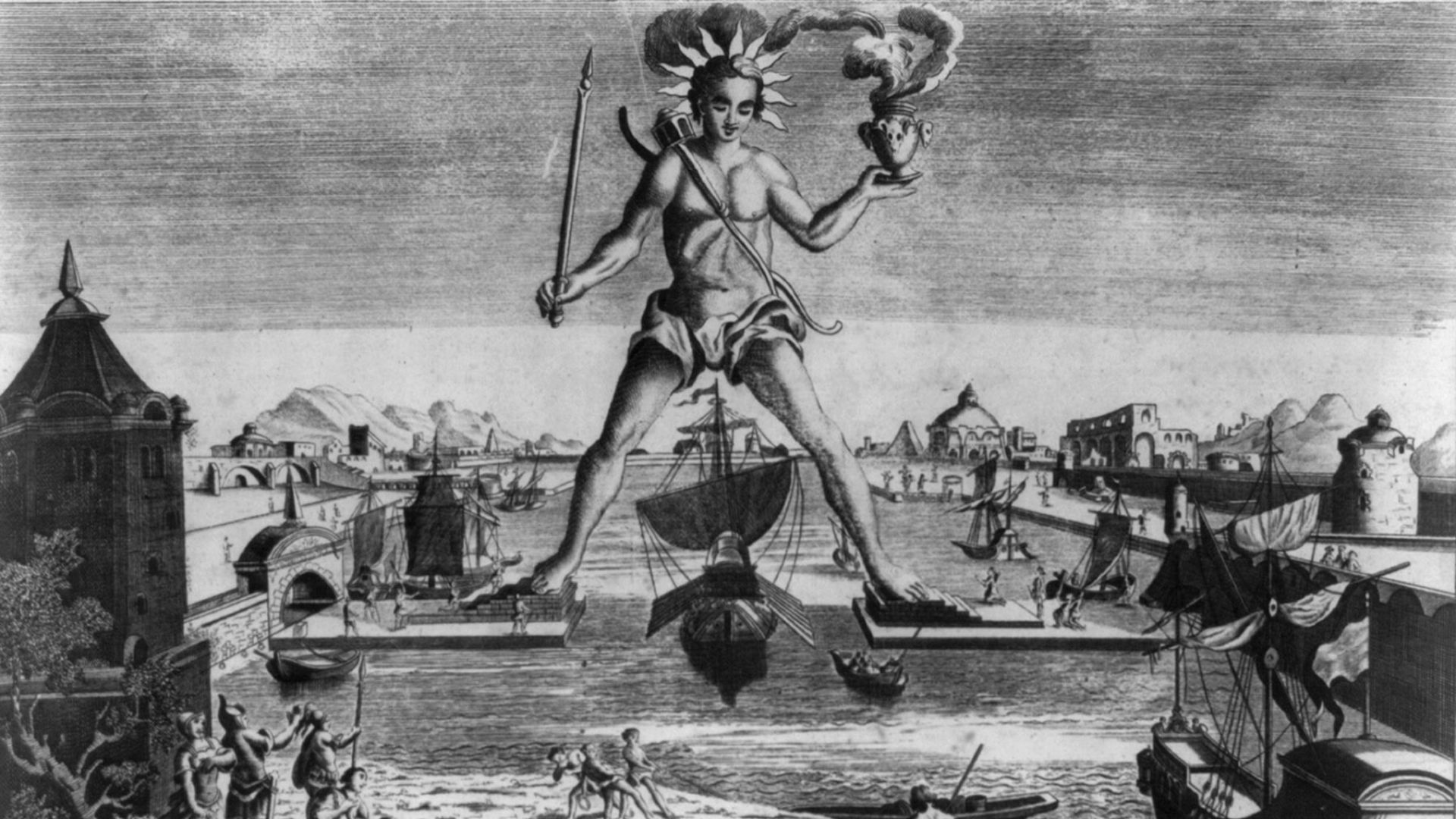Rhodes has a long and fascinating history, as evidenced by the numerous ancient and medieval monuments dotted around the island. Throughout that time, Rhodes suffered many invasions – including the Romans, Knights of St John, Ottomans and Italians – which shaped the landscape, culture and historical heritage of the island we know and love today.
To find out more, here’s our brief guide to the history of Rhodes.
The Mythology of Rhodes
The origins of Rhodes are woven into the tales and legends of Greek mythology. It’s said that Zeus, leader of the gods, gave the island to Helios, the sun god, following the gods’ victory over the giants. Helios blessed the island with his radiance, leading to its epithet – the Island of the Sun – and his grandsons divided the island between them, bestowing their names on their respective city-states: Kameiros, Ialysos and Lindos. (More on this in our post on the mythology of Rhodes).
But what do we know for certain?
Prehistoric Rhodes
Another tale from mythology describes the original inhabitants of Rhodes as the Telchines, a mystical race of sea-demons who were artists, magicians and craftsmen, believed to be the inventors of metalwork.
This is a little less fanciful, because we know from archaeological finds that the Minoans and the Mycenaeans settled here during prehistory, both civilisations renowned for their metalwork and artistic achievements.
However it was the arrival of the Dorians that saw Rhodes grow in power and prestige, the city-states of Kameiros, Ialysos and Lindos becoming three of their principal cities.
Classical & Hellenistic Rhodes
The Persians briefly invaded Rhodes during the fifth century BC, leading to the island joining forces with the Delian League under the leadership of Athens. Acknowledging the power of strength in numbers, the three city-states united in 408 BC to form a single capital, Rhodes Town.
During Hellenistic times, Rhodes became part of Alexander the Great’s empire, with Rhodes Town flourishing as a maritime, commercial and cultural centre.
In late antiquity, the island fell under the control of the Romans and then the Byzantine Empire.
Medieval Rhodes

In 1309 AD, the Knights of the Order of Saint John of Jerusalem conquered Rhodes, acting as a gateway between Europe and the Holy Land. The island flourished during their reign, becoming an important centre for trade thanks to its strategic location.
Their legacy remains visible today, especially in Rhodes Town where the medieval fortifications and impressive buildings such as the Palace of the Grand Master, Hospital of the Knights and Street of the Knights are protected as a UNESCO World Heritage Site.
To find out more about this crucial period in Rhodes’ history, see our Rhodes Old Town and Jewish Quarter walking tour, or combine history with a drop of Greek delight on our walking and wine tour in the Old Town.
Ottoman & Italian Occupations
History took a dark turn in 1522 AD when Rhodes fell to Suleiman the Magnificent and the Ottomans seized control of the island. Rhodians were forced into the countryside and denied the right to partake in commercial activities.
The Ottomans remained in control for the next four centuries, until Italy took over in 1912 during the Italo-Turkish war. During their short reign, the Italians restored many important buildings, such as the Palace of the Grand Master, and built new ones, including the spa at Kallithea Springs, but they denied the Rhodians control of their island.
Rhodes after the Second World War
Rhodes suffered during the Second World War, along with much of the world, with bombs destroying many buildings and Rhodian Jews being deported and many murdered at Auschwitz.
The island was eventually surrendered to the British at the end of World War II, and in 1947 Rhodes, along with the other Dodecanese islands, officially became part of the Greek State.
Learn About the History of Rhodes with Rhodes Experience
If you’d like to learn more about the history of Rhodes, we offer a number of private Rhodes tours and shore excursions, covering everything from historical monuments to culture, food and wine. To find out more, contact Rhodes Experience – we’re here to help you plan your dream holiday on the Island of the Sun.


